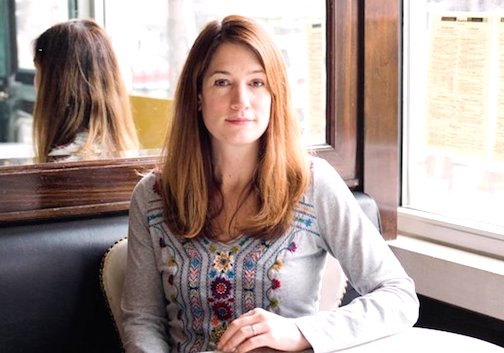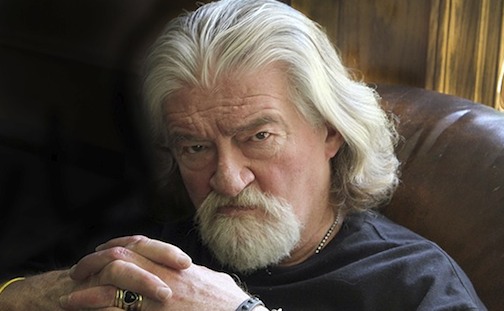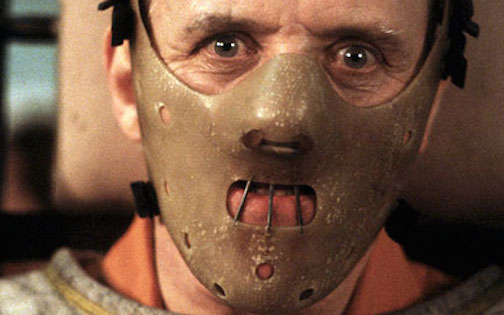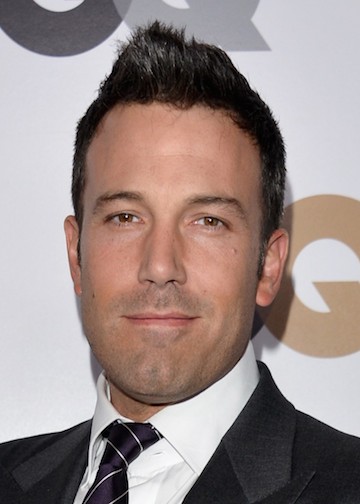Point/Counterpoint is a beloved feature that first appeared in the fall ’72 Telex edition of the Weeklings. PC/P is the product of an intellectual tradition hearkening back to storied Oxford debate squads and the golden age of radio, in which two authors match wits over random subjects while being forced to choose a side and defend it on the fly. Readers are advised to stand back, as the heat can get intense. This week’s Gone Girl edition involves novelist, storyteller, and Manhattan’s most brazen foil, Ms. Diana Spechler.
Editor’s note: Gone Girl is a thriller written by Gillian Flynn. It’s about Amy, who may or may not be dead, and her husband Nick, who probably killed her. Unless he didn’t. In any case, although P/CP management believes the notion of “spoilers” is basically whiny horseshit, it should be mentioned that Gone Girl revolves around a very specific twist. So if you prefer to remain in a pristine state about either the book or film, kindly stop reading here.
Ladies and gentlemen, we are now on the clock.
Amy is an insult to Feminism with a capital F
Point (Spechler): I’m not sure I understand what the difference is between “feminism” and “Feminism,” but Amy is cool with me. (And Cool with me.) Would I want to be friends with her? No, because she’s a sociopath and that would be super scary. But there’s nothing un-feminist about a woman who takes no shit; a woman who, silenced or immobilized, resorts to extreme measures to claim her power. Amy hails from a long line of real and fictional women who have come out swinging against the patriarchy: Recently, I’ve been most proud to share a gender with Reyhaneh Jabbari—total respect. Respect for Lorena Bobbitt, too. And I’ve always loved Medea, whose husband, after all she did for him, ditched her for a princess. Forced to accept his betrayal, the king’s bullying, and her lot as a woman of low status, she used the only power she had and murdered their children. Holy hell! But at least no one could call her meek. At least no one could call her irrelevant. At least her husband would never again assume that he could treat a woman however he pleased with no repercussions. Amy is our modern-day Medea: She has no kids to use as pawns, but she refuses to lie down and accept the way of the world—that the older women get, the more they’re ostracized and rendered invisible. She ruins her husband’s life instead of letting him ruin hers. Is that a nice thing to do? No! It’s terribly unladylike. But: capital F indeed.
Counter-Point (Beaudoin): The best thing about Gone Girl is how many female characters it has. Aesthetic judgments aside, there are important non-Steel Magnolias roles for at least seven women, all of whom make crucial decisions and have distinct personalities while remaining undefined by their gender. The fact that it’s unusual enough to type this sentence is damning. Although possibly not enough to make me endorse anything even marginally Bobbitt. The second best thing about Gone Girl is the thinly-veiled portrait of Nancy Grace. Her depiction is a definite feminist statement, one that I would happily gather signatures to pass an amendment for, ERA 2014: Abrasive Cable Harridans Do Not Represent Us. The Abbot/Grace character is a cynical opportunist who wallows in Tragedy Porn, concentrating her mercantile fury on whatever crime will pull an 11 rating during the next Kia commercial. Which is nice in the sense that fiction and film are both very much in need of more fully-realized female villains and psychopaths, who have a sense of humor, concrete opinions, and their own agency. On the other hand, real life definitely needs one less Nancy Grace.
Genre fiction is inherently non-literary and read mainly by anti-intellectual dupes
Point (Beaudoin): I love genre fiction. At least to the extent that I don’t really believe it exists. A good book is a good book. Jim Thompson and Elmore Leonard are literature. Shelve them wherever you like. Six sentences of Cormac McCarthy are far more valuable than an Amazon fulfillment center’s worth of earnest MFA debuts, but Blood Meridian remains genre to the core. Any novel that gracefully realizes its stated purpose is rare, regardless of the setting, even though White Man Ruminates About All The Sad Ways The World Has Changed continues to garner the majority of literary respect despite being more derivative than dragon tattoos. So I spent a lot of Gone Girl thinking Jesus, this must have taken a lot of work to hammer out. For that alone, kudos! The book is both intricately plotted and cosmetically observed, filled with commercial-as-fuck characters who slyly manipulate the reader in exactly the ways they were intended to. It’s a winning formula. At least for sales. And a merciless one, if only on a karmic level, fusing female rage onto the back of comically dip-shitty male characterizations. Hey, Jezebel, I hated Nick, too! Can we be friends now? Of course I also hated Amy, but less for her murderous intent than her brittle non-personality and insipid pop-culture references. In any case, Gone Girl sets up a deck chair’s worth of expectations and then proceeds to deliver on them, hard, like 400 pages worth of left hooks to the pancreas. Did I feel duped? No, but only because I spent the previous night taking elaborate notes in the margins of my Best of Unintended Nihilism anthology.
Counter-Point (Spechler): I, too, take issue with labels like “genre” and “literary.” Why do you need someone to warn you what your fiction’s going to be? Other things I take issue with: the label “earnest MFA debuts,” as if an earnest debut depends on an advanced degree in creative writing; accusing a writer of manipulation (I mean…what do you think narrative is?); the term “female rage,” as if women have their own special pH-balanced formula; bananas; the silent farts of strangers; and funeral selfies.

“I long for a mate with the ability to frame me for murder just as my aphorisms on Apollonian/Dionysian dichotomy and the UbërWench begin to take hold.”
Break down Amy’s “Cool Girl” theory
Point (Spechler): I’m with Amy: “…believe me, he wants Cool Girl, who is basically the girl who likes every fucking thing he likes and doesn’t ever complain.” Confession time: I’m no Medea. At least, I’ve cracked under Cool Girl pressure once or twice and committed acts that rolled back the entire women’s movement. For example, when I loved a voracious gamer and would wake in the night, alone in bed, to machine-gun sounds pinging the wall, I never complained. In fact, early on, I told him something to the effect of, “I don’t know how to play video games, but I wish I did!” (I’ll just come out and admit right now that I was thirty years old.) I cannot tell you what his favorite interactive video game was called or anything about it, not because I wish to protect his identity, not because he didn’t educate me about the game in great detail (he did), but because there is something in my makeup (two X chromosomes? I don’t know) that greets exhaustive information about video games the way a bullet-proof vest greets bullets. And yet. “That’s really cool,” I kept saying. (I’m really cool in all the ways you wish I was cool. I have no subjectivity or agency. Hold me.) “When you turn on the game,” said my beloved, “you can see the list of the top players in the world. Do you know where I rank?” “You must be number one!” “Well,” he said, scratching his chin. “I’m two.” “Two’s such a good number, actually.” One morning when I was leaving his apartment (I know how to give a guy his space!), he was sitting on the couch, wearing a headset to talk to whoever it is you talk to on a headset when you play an interactive video game. Thirteen-year-old boys in Japan? We had dinner plans later that night. He was going to dump me at dinner, but who knew? Not I. “Well, have a great day,” I said, smiling brightly, though he seemed oblivious to my presence. “I could really use some back-up here,” he told his tiny microphone, his eyes narrowed into sticks, his jaw working, his thumbs tap-dancing over his gamepad. “I could really. Use. Some. Back-up.” He killed his enemy and shrieked, “YEAH, BABY!” “Wow!” I said, opening the door. “Great job! Good luck!” Certainly, he never told me to validate his every whim, never perched my chin on his fingertips, held my gaze, and whispered, “Be cool.” But the message was clear. It’s clear to all of us. Ingrained: Be a male fantasy. Be the sexy cocktail waitress who shoots whiskey with the boys. Be the supermodel who smokes a cigar. Be that same supermodel (in a different ad) who wears a baseball cap, clutches a hotdog, cheers for her man’s favorite team. Take Nick’s Cool Girl mistress: What does she do the first time she sees Nick after learning that he might have murdered his wife? Watches a cop show with him on television. Straddles him. Puts his hands on her breasts. Who inspired that move, her inner warrior goddess? I’m going to go with: probably not.
Counter-Point (Beaudoin): The “Cool Girl” chapter contains the most astute commentary in the book. Really, I think it should have been the main theme: the way that men in sour relationships delude themselves into thinking there are other “hassle-free” women out there just waiting to be discovered, elusive cool girls who require no emotional investment, provide sex a la carte, never complain about anything, never have any real opinions, and more or less exist to facilitate a brand of dorm-style immaturity forever. The converse is the woman who sublimates herself, hides her true thoughts and feelings, pretends to be interested in the home repair of differential transmissions, and provides a genial respite from her inner fishwife. Until she doesn’t anymore. Queue break-up. So, essentially what you just said, but with more commas.
Also, the way a “bullet-proof vest greets bullets” is to spread its Kevlar wide enough to allow the para-aramid fibers to envelop the tip of the bullet so that its velocity is expended prior to full penetration. Just saying.
Gillian Flynn earned $16 million dollars last year
Point (Spechler): No one should make $16 million dollars in a year. That is total bullshit. People have four jobs. People are starving. People have Ebola. But as a writer who loves many writers, both as people and as writers, and who knows how artists of all kinds struggle, I can’t help but get excited when I hear about an author enjoying a windfall. (There are exceptions to my vicarious excitement, but I’ll stay on point here.) Flynn wrote an exhilarating book. I mean, she truly rallied the masses—with a novel! A novel written for and read by adults, a novel whose hero is not a creepy rich man who flies some young girl around in a helicopter and whips her and makes her sign a contract that says she’ll avoid eye contact with him forever. The whole world bit their fingernails and cuticles off reading Gone Girl. Why? Because it is a feat of plot: The narrative reads like driving on switchbacks, yet the author never resorts to formula. Add to that: The book has social resonance, humor, darkness, and a mastermind female protagonist. It’s a love story that’s never been told. Plus, it’s Gillian Flynn’s third novel, and her first two were equally gripping. Who would you rather see pocket $16 million? Bank CEOs, some of whom would find a $16 million salary insulting? The former president of Target? That was roughly his severance package. ISIS? They make more in a week. I wish that no one “earned” $16 million, but come on. We’re talking about a badass female thriller writer! That’s kind of great.
Counter-Point (Beaudoin): Being an author is nominally about lashing sentences together, but the bulk of a writer’s time is spent stewing in a broth of bitter jealousy. The main component of which is to arbitrarily pronounce who does or does not “deserve” their sales. Not to mention who got a ridiculous marketing budget, who is the baldest schmoozer at fern parties, and who donkey-punched Jeff Bezos or glory-holed the CEO of Hachette to get their six-figure deal. To me none of that remotely matters. Gillian Flynn pitched, wrote, and sold a book that hit the jackpot. Great! Read it or don’t, but offer up your congratulations just the same. I’m also well aware that Mrs. Flynn requires no critique from me, and would likely dismiss everything I’ve ever written as trash, or at the very least an insufficient bulwark for the lobbing of rude opinions on any subject, but especially Gone Girl. Fair enough. Except this is a Point/Counter-Point, not “Being Nice Hour with Sean, Diana, and Michael Strahan.” Besides, the only time I would ever slag any book (at least publicly) is when it has already become such an irreversible component of popular culture that my cheap sarcasm can’t possibly harm the author’s career. (Or unless they’re long dead–you should Google the smack I’ve talked about Aldous Huxley). Bottom line: writing is fucking hard, regardless of genre or literary street cred. And it’s soul-killing to pour yourself into a book, only to stand around while people gleefully piss on it. So I pretty much refuse to run down anyone’s novel, despite my hidden feelings. Unless they make $16 million a year.

This is the table where I sign the checks. And am sometimes served an egg white and blanched asparagus frittata.
If a man had written Gone Girl, word for word, it would have sold fewer than five hundred copies
Point (Spechler): Ten Rules For Men who write Gone Girl (to avoid selling more than five hundred copies): 1. Self-publish. 2. Make copies available only to roommates. 3. Insist that roommates sign nondisclosure agreements. 4. Buy awesome bong. 5. Pass bong around until no one can remember how to stand up or read or perform autonomic functions such as salivating. 6. Hide toilet paper. 7. Carefully rip pages from each copy of book. 8. Stack pages on bathroom tiles. 9. Continue to get everyone too high to buy toilet paper until all evidence of self-published thriller has been destroyed. 10. Later, if roommates ask, “Was it a dream or did you write a book and make us sign nondisclosure agreements and leave us to wipe our asses with–” cut them off to answer, “Dream.” And that’s it. All the men who wrote Gone Girl before Gillian Flynn did followed the rules. Bet they’re kicking themselves, don’t you think?
Counter-Point (Beaudoin): Ten reasons why if I had written Gone Girl, word for word, I’d be getting more hate mail than Joe Ezterhas: 1. GG has more in common with Death Wish than Betty Friedan. 2. It’s a cruelly-realized revenge fantasy. 3. It’s about the reversal of power roles in which the power never actually reverses. 4. Amy Dunne is Charles Bronson with a sock full of nickels beating down a mugger, but she never goes back to her apartment and pukes with disgust at her actions afterward, she re-fills the sock with gold ingots and gets ready for the next swing. 5. Every single character is powered by a breathtaking narcissism that it seems the author is only partially aware of. 6. The characters are less a critique of contemporary culture than a reflection of the reflection of it. 7. It’s true that many men have already written clumsier and more patently offensive Gone Guys, but if those books are now remembered at all, it’s as tedious and masturbatory. 8. Gone Girl is refreshing because of its willingness to allow its characters to be gleefully amoral and emotionally blank, a literary tradition not often welcoming of female writers, as evidenced by the fact that the only book Gone Girl is ever compared to is whatever Patricia Highsmith title first pops into the reviewer’s head. Except that Patricia Highsmith’s sociopaths feel observed rather than constructed, rooted in acerbic class commentary, and saddled with psyches that are frighteningly believable. Gone Girl’s feel like pop cartoons, if not odd celebrations. 9. For example, let’s take the character of search-groupie Noelle Hawthorne (big tits, blonde, sexually voracious, immediately propositions Nick as he barely resists her long/tan/silky blah blah in favor of handing out missing wife flyers). Sorry, but a man doesn’t score David Fincher with that level of perfumed cardboard. 10. For example, let’s take the character of Nick’s mistress Andie Hardy (big tits, brunette, sexually voracious, has to be called regularly during the height of a murder investigation, because instead of driving to Texas to lay low for a month in her mom’s basement, she needs to hear Nick’s voice once a day or she’ll just absolutely die of the itch without it. Oh Nick, forget the police in the driveway or my three-to-five without the possibility of parole as an accessory, I need you right here, right now, with your sister in the next room. Cause I’m HOT for it, Nick, just like any convincingly vacuous grad student sex-bomb would be. No, no, forget the rubber, I hate rubbers. Now pull my luxurious hair again while you whisper zone-read defensive schemes as drawn up by Buddy Ryan for the 1988 Philadelphia Eagles. Yes, that’s it.) 11. Of course I get an eleven and you don’t. What, did you think this was some sort of matrilineal Gynecocracy?
How Much Do You Gotta Believe? – Passing the Plausibility Test
Point (Beaudoin): Obviously, Gone Girl is not meant to be taken at face value, although it’s reasonable to expect a thriller’s internal logic to remain consistent, even if that logic involves time travel or lusty werewolves. Gone Girl is about a beautiful Manhattan couple who lose their jobs and move back to the sticks. You know, actual people. So the notion that one half of that couple is also a super-genius able to spend a year planning a crime that involves manipulating the media, the police, and their family with a level of detail that would otherwise require a 12-man team of forensic pathologists (plus David Caruso) to pull off even half as successfully is not only ridiculous, but astonishingly dull. Hannibal Lechter more or less ruined it for everyone. What, Amazing Amy is smarter than Anthony Hopkins? She digs fava beans and middling Chianti just as much as buying $100,000 worth of stuff and hiding it in her sister-in-law’s shed without anyone noticing? Characters in Gone Girl spend a lot of time explaining away the implausible with sentences like “…but you got to realize, Amy was brilliant…” Oh, okay. No wonder she flipped over the ottoman. The real question, though, is does plausibility matter? People don’t read escapist literature (yes, I said literature) to poke holes in the logic. Or maybe they do, but in that case they’re probably also humorless prats in all other aspects of their lives. Gone Girl exists to entertain, regardless of your willingness to accept that by gaining ten pounds and wearing fake glasses, Amy would be able to keep from being recognized during a nationally televised manhunt. I thought Gone Girl was wildly implausible all the way through, to the point of genuine hilarity by the end. But I can’t say those inconsistencies really made me like it any less. What did make me like it less was the fact that I didn’t believe in Nick or Amy as people in any respect, as capable of having actual emotions, or owning a bar, or teasing a sister, or even (well, sort of) living in a Brooklyn. Not to mention freezing their spare vomit for later evil purposes.
Counter-Point (Spechler): True: The novel’s not exactly realist. It’s more of an allegory, like Animal Farm—about marriage instead of Stalinism. Or maybe it’s a satire of gender roles. Either way, we can’t expect Nick and Amy to behave like actual humans any more than we can expect Snowball the pig to be a man named Trotsky. Nick and Amy are representations—a joke about the time-worn accusations that husbands are scamps and wives are vengeful drama queens, that men are “assholes” and women are “crazy.” In Gone Girl, it’s like, fuck yeah, this guy’s an asshole; he’s a philanderer and a killer! And Amy? Crazy? She makes crazy look sane. When you don’t expect the book to be something it’s not, the internal logic makes perfect sense and the plot points are plausible; it’s not like Flynn employed sudden aliens or miracles—just a little frozen vomit.
Ben Affleck’s casting as Nick
Point (Beaudoin): Ben Affleck is probably a good guy. Not to mention a great husband, father, and friend. But I think his accent in Good Will Hunting sucked, and it’s all been downhill from there. For years Hollywood has labored to make him a leading man. Didn’t you see Daredevil? Didn’t you see Gigli? Yeah, me neither. But I’m pretty sure he sucked in those, too. Affleck reminds me of this guy I used to play basketball with. He was tall and strong and could leap like hell. He could dunk on the fly and had a good outside shot. He should definitely have been the star of our team, maybe even recruited to some Division II school. Except he was a comic failure, the coach constantly on his ass, the crowd booing his every move. Until he finally quit to concentrate on smoking dirtweed instead. Why? There was just something about his body language. The tilt of his head, his untimely grin, a way of loping down the court like he had honey poured in his legs—he was trying hard but it always seemed like he could be trying so much harder. I think the same may be true of Affleck. Whether it’s accurate or not, he comes across as unbearably smug. His grin says, “I am shallow beyond all measure, to an extent that is truly fathomless.” It also says, “I am Ben Affleck, the celebrity, not whatever character I’m playing, and therefore I will continue to ruin this movie by failing to allow you to suspend disbelief.” In any case, he’s ideally cast as Gone Girl’s Nick, because we all know Nick deserves his ultimate fate, and are rooting for him to get screwed. It’s possible the real failure of the book is that he never gets screwed enough.
Counter-Point (Spechler): Seriously? You just set me up to defend Ben Affleck? Okay, let’s see…both Ben Affleck and Nick are handsome. So. Good job, casting director! Really, all that comes to mind when I think of Ben Affleck is the time he gave Jennifer Lopez a 3.5 million dollar engagement ring and 600,000 people starved as a result. Remember that? I’ll tell you a secret: I never saw the movie Gone Girl. And I’m no casting director. But I’m certain I wouldn’t have cast Ben Affleck. Off the cuff, I can think of handfuls of inordinately talented and little-known actors who would have worked the hell out of that role; who aren’t prone to the brand of selfishness that buying multi-million dollar jewels requires; and who can affect a convincing Boston accent. (I’m from Boston; I can judge these things.) Some of the actors on my list are women, by the way.
Counter Counter-Point (Beaudoin): Casting Jennifer Lawrence as Nick would have been a stroke of mind-blowing genius.
The Ending: Satisfied?
Point (Beaudoin): Hell, it sold fifty-seven billion copies or whatever. Hard to argue there. It’s possible that because of Gone Girl there’s no longer enough spare font left over to print the next six James Pattersons, so Mrs. Flynn must have done something right. But what, exactly? I’ve been having a hard time putting my finger on it. Therefore, I conducted a rigorous scientific study by asking five (5) random people what they thought. Note to whatever my eventual point is: every single one of them had already read it. The first were a couple. Let’s call them Alex and Dana. They both hated it, but confessed to a new-found strengthening of their love upon discovering a shared enmity. The second and third were guys, both of whom looked at me like I’d committed man-sin for even asking. “Horrible,” they said. “A total nightmare.” Note to their un-named asses: they both still finished it. The fourth was my mom, who said she liked it if I did. The fifth was an older female on the bus. “Fantastic,” she said, only mildly annoyed at being distracted from her fifth of Royal Gate, not to mention well-thumbed copy of The Life of Pi. The final subject was my friend Danny, who said, “Dude, I’m a fag! What do you expect? I loved the fuck out it!” Of course, he pronounced “loved” like “lurved” and then we went shopping for pillowcases, since Danny does not lurve my pillowcases and is trying to improve my life on an aesthetic level one comfort item at a time. He made sure to point out to almost everyone in the store that I am severely under-threadcounted. Well, not anymore. Anyway, the ending of Gone Girl: Desi. Sigh. He kidnaps the girl who just barely finished kidnapping herself? If you’ve ever wondered what old-school editors in the Gordon Lish mode used to do besides swill martinis and wear Homburgs, that’s it right there: they put down their secretary and said, “Nope, that doesn’t work. Sorry, but you have to take the Desi part out and think of something better.” On the other hand, if you want to run with the notion of Amy not being charged with any crime so that she and Nick can go home that night and keep living together and eventually kind of realize they’re each what the other deserves, then cool. Yes, I get the irony. Yes, I get that they are each others’ prison sentence. It opens the door perfectly for the sequel, Murderous Feminist Bed Death: Amy and Nick on Parole.
Counter-Point (Spechler): I wanted to see justice done! The problem was one of characterization. Until Amy’s homecoming, I happily suspended disbelief. But suddenly, the characters stopped acting like themselves. We were supposed to believe that the imposter Nick and Amy were the Nick and Amy we had spent 500 pages with. We were supposed to believe that Amy would get away with her circus of a crime, that Nick would let her, that the cops would accept her absurd alibi just because she threatened them a little. After Gone Girl, I read Dark Places, Flynn’s previous novel, and I have to say she did a much better job tying that one up. So: I really can’t argue with you here, Sean. Much as I know you like it when I argue with you. The ending gave me a semblance of blue balls, if I may be so presumptuous.
Counter Counter-Point (Beaudoin): You can, because it gave me menstrual cramps so bad that I took a hot bath, made tea, and fell asleep watching re-runs of Scandal.
Ladies and gentlemen, we have reached the finish line of this week’s Point/Counter-point. Thank you once again for participating. The votes are being tallied and will be released to the public after they’ve been verified J.D. Powers and Associates, as well as the Washington State Attorney General.
 Diana Spechler is the author of the novels Who By Fire and Skinny. She has written for The New York Times, GQ, O Magazine, Esquire, New York Magazine, Details, The Wall Street Journal, Nerve, Slate, Glimmer Train Stories, and elsewhere. She teaches writing in New York City and for Stanford University’s Online Writer’s Studio. Learn more at www.dianaspechler.com.
Diana Spechler is the author of the novels Who By Fire and Skinny. She has written for The New York Times, GQ, O Magazine, Esquire, New York Magazine, Details, The Wall Street Journal, Nerve, Slate, Glimmer Train Stories, and elsewhere. She teaches writing in New York City and for Stanford University’s Online Writer’s Studio. Learn more at www.dianaspechler.com.







